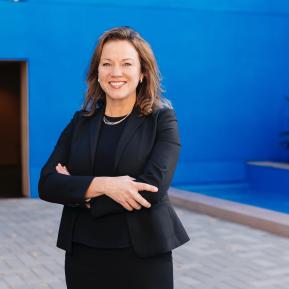Decentralization with Guardrails
Enhancing the Zambian Constituency Development Fund (CDF)
This project addresses the challenge of how to provide critical public infrastructure via local governance institutions in Zambia, a country with an estimated 88% of its population living on less than $5.50 per day.
While delivering basic public goods and services to local communities is critical for combatting poverty, the government faces capacity constraints and accountability challenges in delivering on this mission. Zambia’s reform-oriented President sees decentralization as a solution: one of his first acts in office was to increase—by a factor of forty—the amount of funding allocated to the 116 district-level Local Authorities via the Constituency Development Fund (CDF), which provides grants to fund public infrastructure in primary health, education and agriculture. Such an acceleration of decentralization, however, does not come without risks: potential gains from informational advantages held by local government may be offset by their weaker administrative capacity; and instead of reducing leakage, the program might end up just decentralizing corruption.
In response, our team has embarked on a learning agenda in partnership with the Ministry of Local Government and Rural Development and the International Growth Centre to evaluate these risks and accompanying solutions via a two-tiered randomized controlled trial (RCT). The first “top-down” tier tests whether deepening the decentralization of CDF approval processes improves project execution speed, and if so, whether it impacts project quality and financial leakage. The second provides a “bottom-up” test of whether providing technical support to the more local Ward Development Committees enables them to better identify, select, and implement projects in their communities.
While decentralization is common worldwide, it is almost always implemented as an “all-or-nothing” reform, making the evaluation of how to optimize more localized delivery, and what structures around decentralization are most impactful, impossible to parse. By using RCTs, we aim to push out the knowledge frontier with solutions that have the potential to enhance decentralized delivery of infrastructure to poor communities.

Research Director

Professor, Graduate School of Business

Country Economist , International Growth Centre

Impact and Learning Manager

Economist & Country Manager , International Growth Centre



